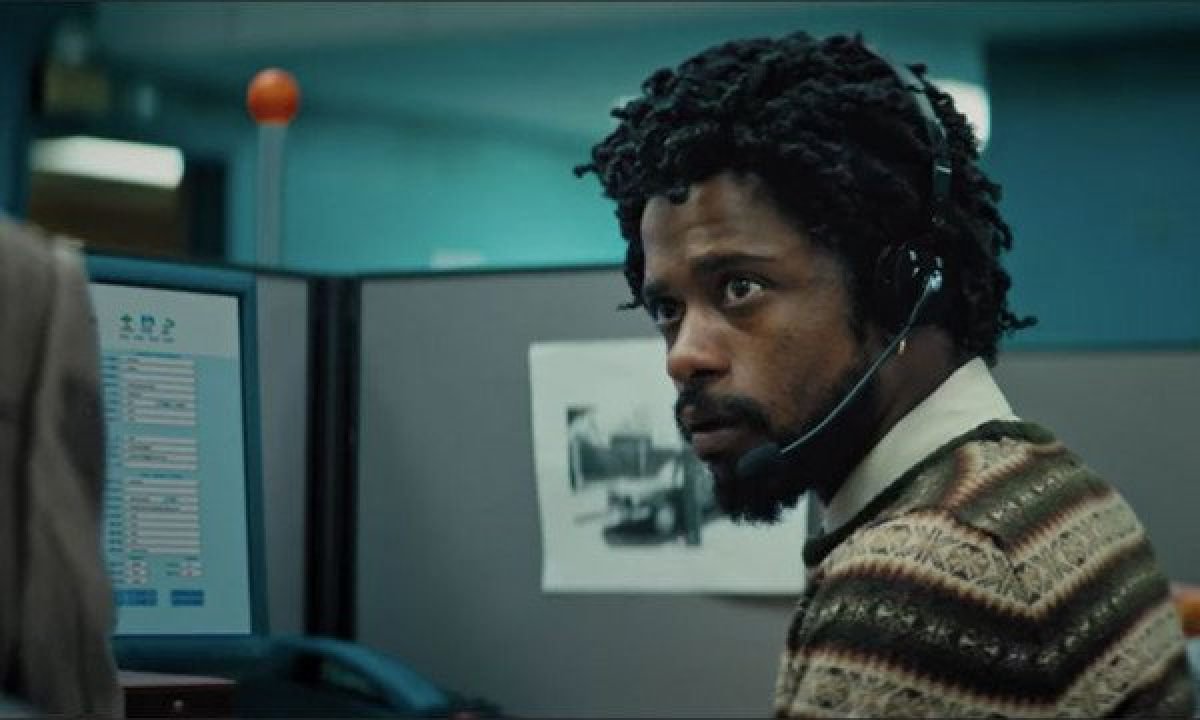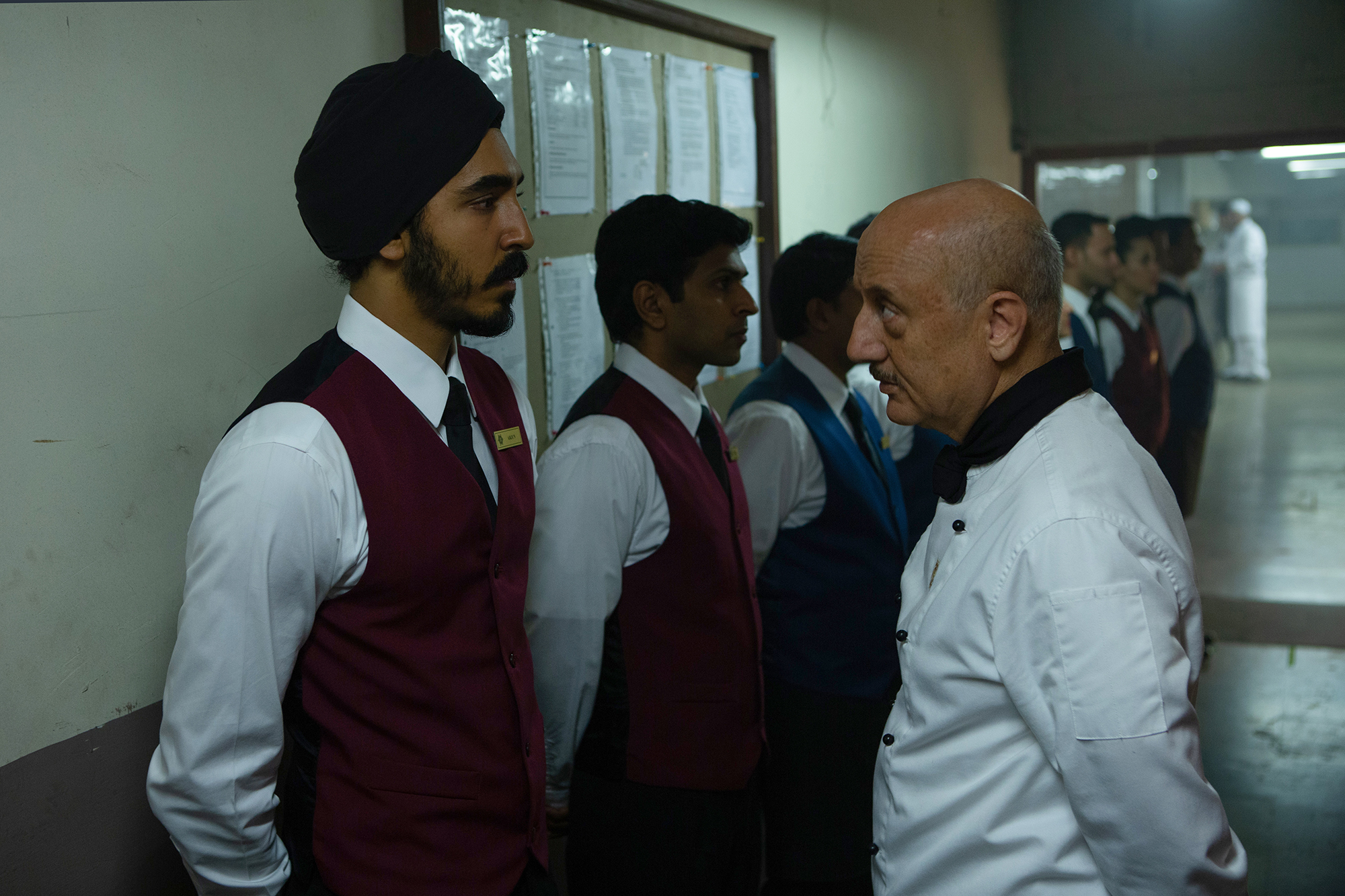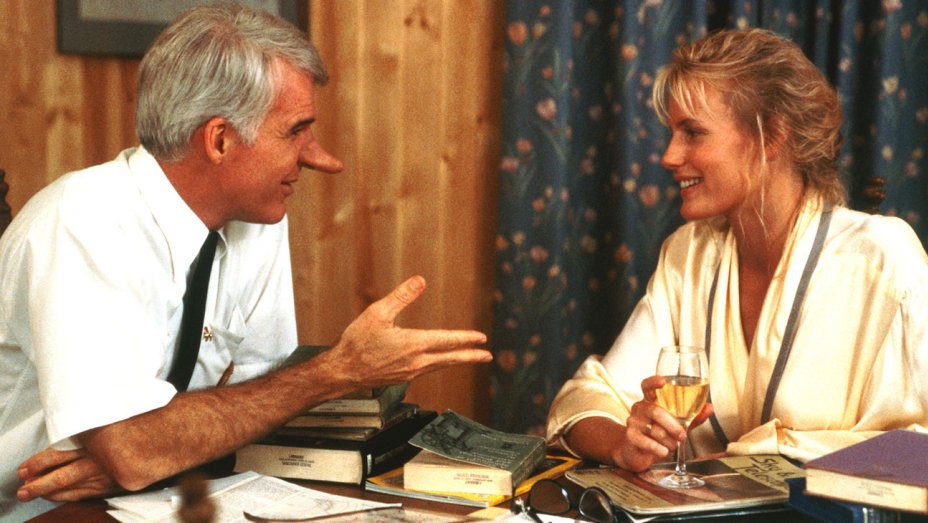It’s hard to sympathize with a telemarketer; that’s a big ask, Boots Riley. And yet, I have to love a guy who brings a trophy to a job interview – you want references? Check this out. A forehead slap ensues when we realize that Cassius Green (Lakeith Stanfield) has applied to a telemarketing job – a company that pays commission only will hire anybody. In fact, most of Act I is a reminder that there is a fair difference between employed and “employed.”
Cassius lives in his uncle’s garage. We figure this out when the automatic door opens revealing for public view bedtime activity between Cassius and his artist girlfriend, Detroit (Tessa Thompson). There is a lot of random clever in Sorry to Bother You: Cassius pulling into a gas station and requesting “forty on number three,” immediately plunking down a quarter, a dime, and a nickel … Detroit has the most awesome collection of homemade earrings ever and wears a new set each scene … later in the film, an employer berates an employee over selecting “the olive door” when he was steered towards “the jade door.” I think I’d like this film for these moments even if I hated the protagonist.
RegalView telemarketing has two levels: one for the regulars and one for the “Power Callers,” who ascend a restricted golden elevator to their higher plane. This is the elusive carrot for Cassius and the throng of marketing peons. I love Boots Riley’s direction for the telemarketing process itself: Cassius is literally, yes literally, dropped into the same room with the “customer.” That’s exactly how it feels when you get a telemarketing call – someone you don’t know is dropped into your life; you can get rid of them fast enough. As a telemarketer at RegalView, Cassius is a failure until Danny Glover shows him the value of having a “white voice” for customers. (Enter David Cross as Cassius’ “white voice”)
Once Cassius masters his “white voice,” the carrot is just a matter of time. I’m quite sure this is not how it works, and I’m pretty sure Boots Riley knows this himself, because while we see the increased celebrations of Cassius’ success, we don’t actually see much of what makes his calls better than those of his peers. But we let him have his fun because we’re all dying to see what happens when somebody becomes a “Power cCller” and what does it have to do with the “WorryFree” planned living campaign that looks like it came straight from Downsizing? And, more importantly, how will Cassius take to his newfound success?
success, we don’t actually see much of what makes his calls better than those of his peers. But we let him have his fun because we’re all dying to see what happens when somebody becomes a “Power cCller” and what does it have to do with the “WorryFree” planned living campaign that looks like it came straight from Downsizing? And, more importantly, how will Cassius take to his newfound success?
At some point, Sorry to Bother You takes bizarre to the next level. I won’t say when or how or where or why, but you should know going in that this modern thematic Hollywood Shuffle revisitation about a man having to deal with selling out issues eventually takes on several Brazil-like dystopian qualities. It’s ok. I like both those films. And I like Oakland, which Sorry can’t get enough of. I hope there’s much more Boots Riley, writer/director, where this came from.
♪I’m selling out
I want my girl to know
That I’ve got cash to blow
I’m selling out
No more flames I will stoke
My values are a joke
There’s a new me on the take
Got cash, for goodness sake
My soul’s completely fake
Caring? That’s your mistake
I think I’ll buy a boat
And then I’ll build a moat
Integrity don’t float
Hey, where’s my remote? ♫
Rated R, 105 Minutes
Director: Boots Riley
Writer: Boots Riley
Genre: Selling v. Selling out
Type of being most likely to enjoy this film: Oaklanders!
Type of being least likely to enjoy this film: People without a taste for exaggeration
♪ Parody Inspired by “I’m Coming Out”



